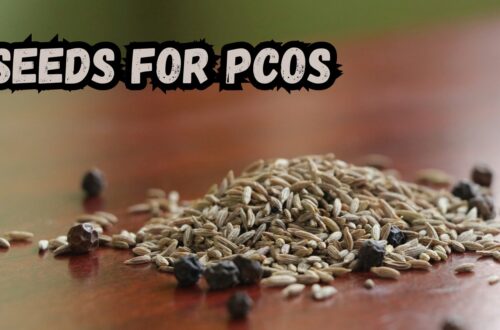Excessive menstruation affects millions of women worldwide, yet many don’t realize the serious health complications lurking beneath heavy periods. Beyond the inconvenience and discomfort, prolonged heavy menstrual bleeding silently drains your body’s iron stores, leading to a cascade of health issues that can impact your energy, focus, and overall well-being. Iron deficiency anemia is one of the most overlooked consequences of heavy flow, causing fatigue, weakness, and even cognitive difficulties that many women dismiss as normal parts of life.
This article explores the critical link between heavy periods and iron depletion, revealing why recognizing the warning signs early is essential. You’ll discover how to identify if you’re at risk, understand the underlying causes, and learn practical strategies to restore your iron levels and reclaim your vitality.

What Is Excessive Menstruation?
Excessive menstruation, medically known as menorrhagia, occurs when a woman experiences abnormally heavy or prolonged menstrual bleeding. While every woman’s cycle is unique, healthcare professionals define heavy menstrual bleeding as losing more than 80 milliliters of blood per cycle or having periods that last longer than seven days. Common signs include soaking through one or more pads or tampons every hour, needing to change protection during the night, and passing large blood clots.
Many women assume their heavy flow is normal because they’ve experienced it for years. However, what seems typical to you might actually be a red flag for underlying health issues. Understanding the threshold between normal and excessive menstruation is the first step toward protecting your health and preventing iron deficiency.
The Iron Deficiency Connection
How Heavy Periods Deplete Iron Stores
Your body loses iron every time you menstruate. During a normal period, this loss is manageable because your body can replenish iron through diet. However, excessive menstruation creates a dangerous imbalance where iron loss significantly exceeds what you can replace through food alone.
Iron plays a crucial role in creating hemoglobin, the vital protein within red blood cells responsible for transporting oxygen to every part of your body. When heavy menstrual bleeding persists month after month, your iron reserves gradually deplete, leading to iron deficiency anemia. This condition doesn’t develop overnight but rather creeps up slowly, making it easy to overlook until symptoms become severe.
Recognizing the Warning Signs
Iron deficiency anemia manifests through various symptoms that women often attribute to busy lifestyles or stress:
- Persistent fatigue and weakness that doesn’t improve with rest
- Pale skin, nail beds, or inner eyelids
- Shortness of breath during routine activities
- Dizziness or lightheadedness
- Cold hands and feet
- Brittle nails and hair loss
- Frequent headaches
- Rapid or irregular heartbeat
- Difficulty concentrating or brain fog
If you experience heavy periods alongside these symptoms, your body is likely struggling with low iron levels.
Common Causes of Heavy Menstrual Bleeding
Understanding what triggers excessive menstruation helps you address the root cause rather than just managing symptoms. Several conditions can lead to heavy flow:
Hormonal Imbalances: When estrogen and progesterone levels are out of sync, the uterine lining can become abnormally thick, resulting in heavier bleeding during your period.
Uterine Fibroids: These noncancerous growths in the uterus are incredibly common and can significantly increase menstrual blood loss.
Polyps: Small growths on the uterine lining can cause irregular and heavy bleeding.
Adenomyosis: This condition happens when the inner uterine lining invades the muscular uterine wall, resulting in intensified pain and increased menstrual flow.
Bleeding Disorders: Conditions like von Willebrand disease affect your blood’s ability to clot properly, resulting in excessive menstruation.
Medications: Certain blood thinners and anti-inflammatory drugs can increase menstrual flow.
Breaking the Cycle: Prevention and Treatment
Dietary Strategies to Boost Iron
Combating iron deficiency starts with nutrition. Focus on incorporating iron-rich foods into your daily meals:
- Red meat, poultry, and fish (heme iron, which absorbs more easily)
- Beans, lentils, and tofu
- Dark leafy greens like spinach and kale
- Fortified cereals and bread
- Pumpkin seeds and quinoa
Pair these foods with vitamin C sources like citrus fruits, tomatoes, or bell peppers to enhance iron absorption.Refrain from consuming tea or coffee during meals, as these beverages can reduce your body’s iron absorption.
Medical Interventions
If dietary changes aren’t enough, your healthcare provider may recommend:
- Iron supplements to restore depleted levels
- Hormonal birth control to regulate and lighten periods
- Tranexamic acid to reduce blood loss
- Nonsteroidal anti-inflammatory drugs (NSAIDs) to decrease flow
- For serious situations, procedures such as endometrial ablation or hysterectomy may be considered.
When to See a Doctor
Don’t wait until exhaustion becomes unbearable. Consult a healthcare provider if you’re soaking through protection hourly, passing clots larger than a quarter, or experiencing symptoms of anemia. Blood tests can measure your iron levels and identify the underlying cause of your heavy menstrual bleeding, allowing for targeted treatment that addresses both the excessive menstruation and resulting iron deficiency.

Conclusion
Excessive menstruation is more than an inconvenience it’s a serious health concern that can silently drain your body’s iron stores and compromise your quality of life. Recognizing the connection between heavy menstrual bleeding and iron deficiency empowers you to take control of your health before complications arise. Don’t dismiss persistent fatigue or abnormally heavy periods as normal. By understanding the warning signs, addressing underlying causes, and implementing proper nutrition and treatment strategies, you can break free from the cycle of excessive menstruation and iron depletion. Take action today: consult your healthcare provider, get your iron levels checked, and reclaim the energy and vitality you deserve.




